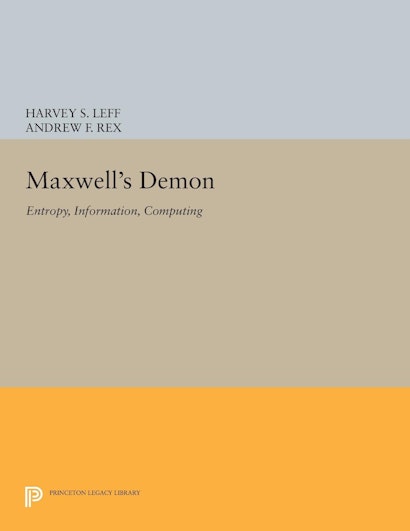Maxwell's Demon: Entropy, Information, Computing


Hardcover
Paperback
ebook
- Sale Price:
- $49.00/£40.60
- Price:
-
$70.00/£58.00 - ISBN:
- Published:
- Jul 14, 2014
- Copyright:
- 1990
- Main_subject:
- Physics & Astronomy
30% off with code PUP30
About 120 years ago, James Clerk Maxwell introduced his now legendary hypothetical “demon” as a challenge to the integrity of the second law of thermodynamics. Fascination with the demon persisted throughout the development of statistical and quantum physics, information theory, and computer science—and linkages have been established between Maxwell’s demon and each of these disciplines. The demon’s seductive quality makes it appealing to physical scientists, engineers, computer scientists, biologists, psychologists, and historians and philosophers of science. Until now its important source material has been scattered throughout diverse journals.
This book brings under one cover twenty-five reprints, including seminal works by Maxwell and William Thomson; historical reviews by Martin Klein, Edward Daub, and Peter Heimann; information theoretic contributions by Leo Szilard, Leon Brillouin, Dennis Gabor, and Jerome Rothstein; and innovations by Rolf Landauer and Charles Bennett illustrating linkages with the limits of computation. An introductory chapter summarizes the demon’s life, from Maxwell’s illustration of the second law’s statistical nature to the most recent “exorcism” of the demon based on a need periodically to erase its memory. An annotated chronological bibliography is included.
Originally published in 1990.
The Princeton Legacy Library uses the latest print-on-demand technology to again make available previously out-of-print books from the distinguished backlist of Princeton University Press. These editions preserve the original texts of these important books while presenting them in durable paperback and hardcover editions. The goal of the Princeton Legacy Library is to vastly increase access to the rich scholarly heritage found in the thousands of books published by Princeton University Press since its founding in 1905.